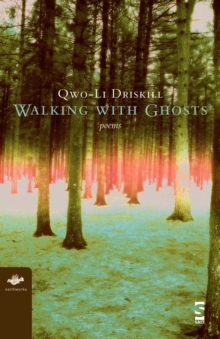
The World So Often : Poems 1982-2008 Paperback / softback
by Luis Garcia Montero
Part of the Earthworks series
Paperback / softback
Description
Luis Garcia Montero (Granada, 1958) is one of the most read and influential Spanish writers today.
He is an essayist, fiction writer, journalist, professor of Spanish Literature at the University of Granada, and, principally, a poet.
He has received numerous important honors, like the National Poetry Prize (1994) and the National Critic's Prize (2003), both in Spain, and the Poets of the Latin World Prize (2010), in Mexico.
He has published eleven books of poetry, represented in The World So Often, his first anthology in English. Luis Garcia Montero's poetry has commonly been considered - even by the author himself - as realist, yet this is a misinterpretation.
His poetic subject doesn't try to trap the reader in an illusory world offered up as natural, but rather to break with the automatic perception of things and facts, and so avoid catharsis.
What's crucial here is the use of a language that does not try to be transparent, a simple instrument of communication, and that risks its neck to be noticed.
It's a language that is both reflection and matter, and thus, has the agency to change things, the capacity to transform.
Moreover, this language is not limited to the lyrical tradition, it doesn't discriminate against words in any way, it becomes democratized.
By combining prosaism and tropological density, it searches for a discourse with a greater power of representation and participation.
In short, Garcia Montero's work achieves a balance between sentimental rigor and intellectual outpouring, rejects solipsism, and goes deeper into dialogical poetry.
Information
-
Available to Order - This title is available to order, with delivery expected within 2 weeks
- Format:Paperback / softback
- Pages:160 pages, No
- Publisher:Salt Publishing
- Publication Date:15/10/2013
- Category:
- ISBN:9781844719037
Information
-
Available to Order - This title is available to order, with delivery expected within 2 weeks
- Format:Paperback / softback
- Pages:160 pages, No
- Publisher:Salt Publishing
- Publication Date:15/10/2013
- Category:
- ISBN:9781844719037










